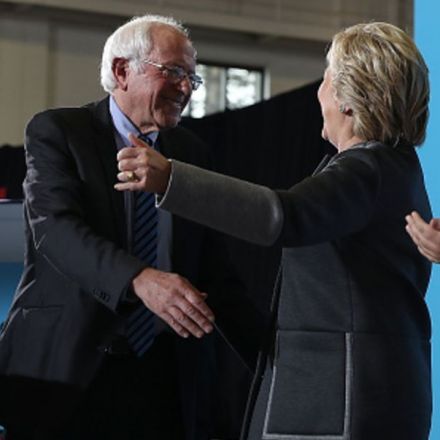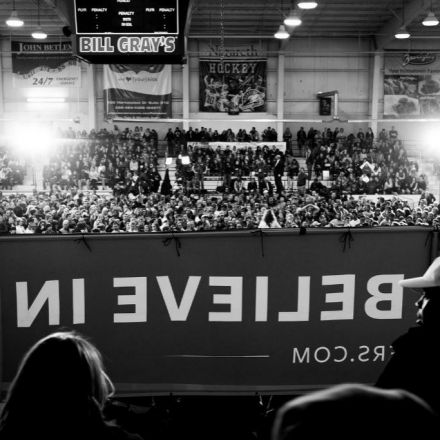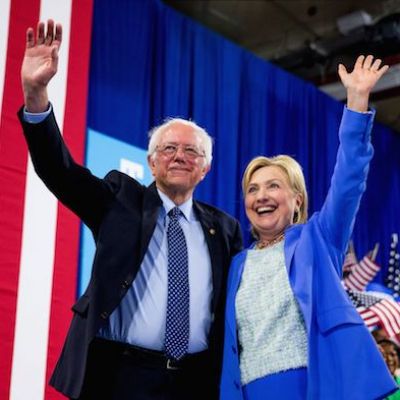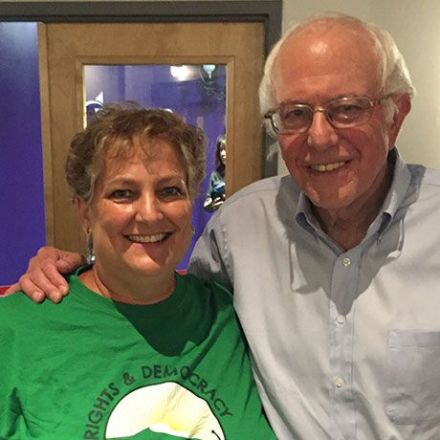

9 years ago
4
A Bernie Sanders Supporter Confronted a Superdelegate — Then Leaked Their Private Conversation
One superdelegate casually admitted to a Bernie Sanders supporter that she’ll vote to nominate Hillary Clinton, despite 81.6 percent of her state voting for Sanders. By Tom Cahill.
Continue Reading-
Five demographic arguments for Bernie Sanders
Clinton began the Democratic primaries with slight-to-significant leads across most demographic categories. Over the past year - even as the media has clung to that narrative - all of those leads have almost entirely evaporated. Here is a quick rundown of the state of the polls today... (Mar. 25)



























Join the Discussion
I've been thinking about this a lot and I'm just going to unload some of it here in first-draft/wall-of-text form because I'm curious what others think and this article is a decent set up.
Full disclosure: I am a Sanders supporter, but not the radically anti-Hillary type. However: I write in hopes that, if anyone of any affiliation sees this and feels like weighing in, we can speak more broadly about the nature of the Dem party's superdelegate system, not the specific issues, candidates, and delegate math of the current Dem primary. Also, if you feel like playing the solutions game after reading, I'd like to propose one limitation, just for the fun of it: no third-party solutions. As will (hopefully) become clear, I'm curious to hear more about how one party - in this case the Democrats - might address the potential and actual issues surrounding superdelegates internally, without a significant intra-party schism or the creation of election-proof power brokers. I have no solution in mind and there may not be one, but it's a neat little puzzle.
So, I feel that the current primary contest is exposing much about the superdelegate system that I don't know if even its creators really thought through. That said, I think in the exchange in the article both Younger and Metcalfe were being too coy. They both must know that superdelegates were conceived, in part, to do exactly what Metcalfe is doing: prefer the nomination of the party insider candidate in the event of a challenge by a durable, popular, 'outsider' candidate. In fact, that may be their only unalienable function, despite their tradition of ultimately pledging their support to the winner of the majority of bound delegates.
We may be seeing a real test of the superdelegate system's weaknesses now, but a test of whether or not the system can be called wise at all is possible. The 'will of the people (read: primary voters)' idea that Younger argues for, and the 'fall in behind the candidate with the majority of the bound delegates' method that has become the norm and which Metcalfe is apparently upholding, are both just ad hoc ideals. They benefit from ostensibly promising results that would serve democratic principles or Democratic solidarity, respectively. They also benefit from the heretofore mostly ceremonial nature of the superdelegate system. The potential weakness in all this lies in the fact that neither ideal has truly been tested by a split delegate (super and bound) count before, neither rests on constitutional law, and most notably, neither promised result actually requires superdelegates to be achieved. In theory anyway, voting expresses the will of the people while the nominee's general election platform and gracious acquiescence by the second place finisher produces solidarity.
But this time around there's some chance that superdelegates may (arguably) make it harder for anyone but the DNC to assert that their existence is wise or even necessary. Consider the following hypothetical future situation: if either the outsider or insider/DNC candidate falls only a few delegates short of a tie in pledged delegates, there could be real reason to doubt the wisdom of having superdelegates and their ability to preserve either the will of the voters and party solidarity, let alone both. Their clearest duty would appear to be to the DNC in such a case. In the current, non-hypothetical context their loyalty to the DNC (an unspoken prerequisite of the superdelegate gig, as I un...
Read FullFirst I'd like to commend you for your well laid out thoughts, challenges and observations. I generally only nibble at politics as I find it increasingly frustrating. I used to be a direct vote thinker, but have changed that view realizing in becomes a rule by mob. The superdelegate system is supposed to part of that check and balance you were alluding to. On the issue of rogue candidates , that description is porous. To the establishment, both camps are overrun by rogues, so there is a dichotomy there.
The conversation in the article is the reason for the rogue element. People do not trust the current establishment. They want it routed. Having said that, they have become the victims of their own political lethargy at their local government level. A valid point, those delegates are supposed to represent the will of the people, the ones who voted for those representatives. So the question is, what has changed so dramatically that those delegates no longer properly represent them.
How many times have we seen the statistics of the very low approval ratings of Congress in general, say 15%, and yet people consistently feel comfortable with the candidate THEY chose.
I'm looking at the American Progressive Era right now, seeing many similarities to our current state of affairs, and I'm afraid that what broke the cycle was a collapse of the system, heralding in a Great Depression, A Great War and reform, some good, some bad. As I see it, the greatest damage that has been done to the current system is the very skewed power of the executive branch coupled with a failed monetary policy that is reaching a breaking point. When it fails, and it will, the person sitting in the chair of the US President will have absolute authority....Executive Orders. Both Rogue candidates will use them against an opposing established and self serving ruling class. And then what do we have.
Thanks for reading and replying. Can you say more about the aspects of the Progressive Era you see reflected in current events? What cycle was broken by collapse, and what system collapsed?
http://239days.com/2012/11/30/the-collapse-of-the-progressives-1917-1920/ This link is a pretty good one. Basically, it was an era of science and progressive ideas and of the middle class trying to end corruption and make sure everyone was in the game. It also saw the beginning of the Federal Reserve, WW1, Roaring 20's and eventually the Crash of 29. This led to The Great Depression, the New Deal (which Progressives opposed) and eventually WW11.....and the New Era of the 50's 60's ,70's and 80's of American prosperity.(kind of a long Roaring 20's)...repeat cycle and rinse.